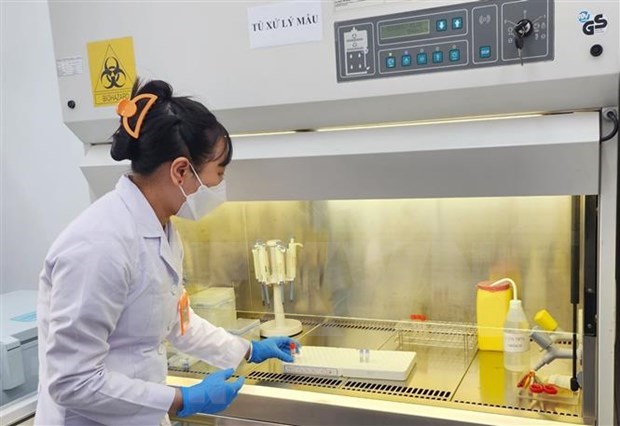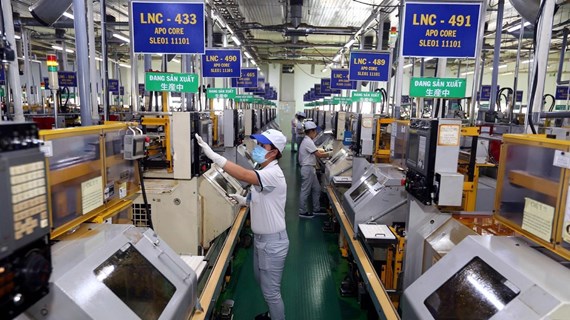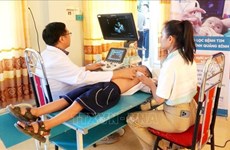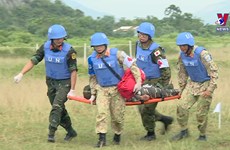Serum bank for controlling infectious diseases operational in HCM City
 A staff at serum centre test samples.(Photo: VNA)
A staff at serum centre test samples.(Photo: VNA)Ho Chi Minh City (VNA) – The Ho Chi Minh City Centre for
Disease Control (HCDC) on August 17 officially
put into operation a serum bank that aims
to provide a toolkit to assess the burden of infectious disease in
the community and guide medical decisions in public healthcare centres in the
future.
The serum
bank now can handle 4,000-4,500
samples and is expected to increase the storage capacity in the near future.
Director of HCDC Dr. Nguyen Hong Tam said that the serum bank will collect,
preserve, and supply samples for testing of infectious diseases for prediction
or early detection of outbreaks, assessment of herd immunity, evaluation of the
effectiveness of interventions, and investigation of the silent circulation of
the pathogen.
He said the HCDC will develop a plan
to collect periodic samples for the serum bank and develop a set of procedures
for storing and using samples for different purposes of pandemic control.
It will build data analysis models and provide orientations for public health decisions in the locality.
The HCDC will take samples from the serum bank to assess immunity
against measles and hand, foot and mouth disease for assessment of the city’s
epidemic risk.
The city’s health sector will
continue to expand the sample source and diversify the types of samples to meet
the needs of infectious disease control.
According to Assoc. Prof. Le Van Tan from the University of
Oxford’s Clinical Research Unit, for a long time, countries around the world
have built serum banks and serological epidemiological investigation programs.
For example, the UK-based serum bank which was established in 1986 has so far
collected over 200,000 serum samples from British people of different ages.
In Vietnam, several serum banks have also been established
through the epidemiological investigation research programme of the Ministry of
Health, the Hanoi-based National Institute of Hygiene and Epidemiology, and the
Ho Chi Minh City-based Pasteur Institute including surveillance programs of
HIV, Zika virus, hepatitis B and C, influenza A H5N1.
In 2022, the HCDC coordinated with the University of Oxford to
conduct three surveys and collect serum samples to help define immunity to
COVID-19 and SARS-CoV-2, said Tan./.













